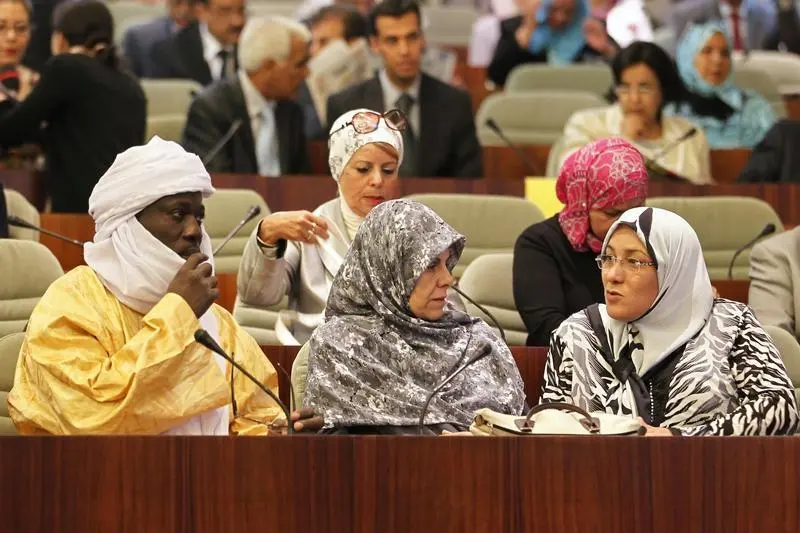PHOTO
By Hamid Ould Ahmed
ALGIERS, June 29 (Reuters) - Algeria's parliament approved government plans late on Thursday to overhaul the country's long-standing subsidy policy, launch Islamic finance and set new taxes, in a fresh attempt to cope with a sharp fall in energy earnings.
The plans are part of wider reforms proposed by Prime Minister Abdelmadjid Tebboune as his government looks to secure new funding sources and reduce reliance on oil and gas, which account for 60 percent of the state budget.
The OPEC member has already cut spending, approved higher prices for some subsidised products and set import restrictions in an effort to ward off the financial impact of lower oil prices and try to improve its poor domestic production.
But its economy is still emerging from the one-party socialist planning that followed the country's 1962 independence from France. It remains mostly state-controlled and has little non-oil industry development.
Tebboune, appointed last month after legislative elections in May, has said his plans include setting up a framework for participatory funding, one of the tools of Islamic financing.
Islamic finance is seen as a way to draw investment from more religiously conservative Algerians and attract money from the informal market, one of the main goals behind the sharia-compliant funding options after previous attempts failed.
"Collecting money from the parallel market will help fill a gap for two or three years. The monetary mass in this market is huge," Tebboune told parliament late on Thursday.
PRESSURE
More steps will be taken to reform the banking system, which, analysts say, has been a hurdle for local and foreign investors because of outdated systems and bureaucracy.
Algeria has failed in the past to implement reforms aimed at diversifying its economy but a prolonged period of weak oil prices has increased pressure on the government to act.
The new government will also launch consultations with parliament and social and economic partners over reforming Algeria's subsidy policy.
"We need a consensus because we are speaking about a policy that we have been implenting for more than four decades," Tebboune said.
Subsidy reform is a sensitive issue in Algeria because the government spends about $30 billion a year to subsidise almost everything from basic foodstuffs and fuel to medicine, housing and education. That system has helped keep the social peace in the past, but the government is looking to rationalise spending.
Last year Algeria approved new prices for subsidised products including electricity, gas, gasoline and diesel for the first time in years. That measure coincided with import restrictions that caused some shortages, pushing up prices for some products, in addition to higher and new taxes.
"New taxes will be implemented for luxury products," Tebboune said, without providing details.
Algeria's foreign exchange reserves have fallen to $108 billion from $114.1 billion in 2016 and $144.1 billion the previous year. Foreign debt is now lower than $4 billion.
"Algeria is not a paradise," Tebboune said. "But it is very far from being a hell".
(Editing by Patrick Markey and Gareth Jones) ((hamid.ouldahmed@thomsonreuters.com;))





















